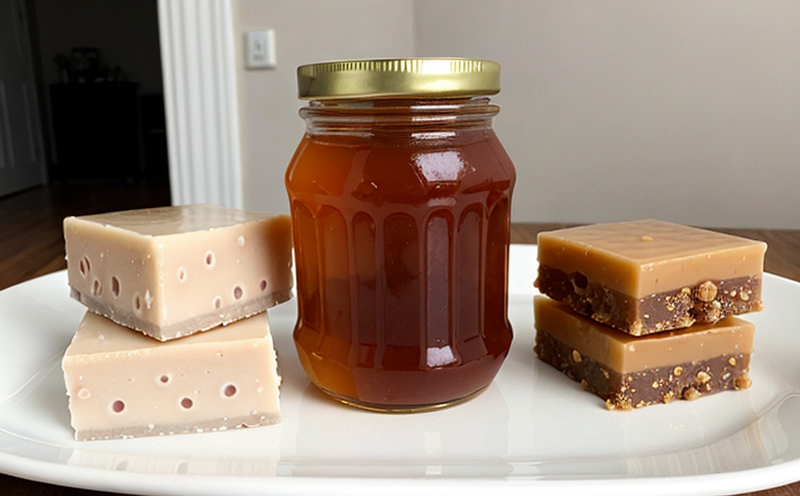AOAC 2000.03 Aflatoxin Detection in Honey
Aflatoxins are a group of toxic metabolites produced by certain molds, primarily Fusarium, Penicillium, and Aspergillus. These mycotoxins pose significant health risks, particularly to humans and animals. Honey is not immune to contamination with aflatoxins if exposed to mold during harvesting or processing.
The AOAC 2000.03 method is widely recognized for its precision in detecting aflatoxin B1, a potent carcinogen, in food and feed products. This method is particularly important for honey producers, exporters, and importers to ensure compliance with international safety standards.
The AOAC 2000.03 procedure involves the extraction of aflatoxins from the honey sample using a solvent-based approach followed by quantification through liquid chromatography-tandem mass spectrometry (LC-MS/MS). The detection limits are set at extremely low levels, making this method highly sensitive for identifying even trace amounts of aflatoxin B1.
Before analysis, honey samples undergo thorough preparation. This includes homogenization to ensure uniformity and the removal of any visible impurities. The extraction process typically employs methanol or acetonitrile, which effectively dissolve aflatoxins from the sample matrix.
The extracted analytes are then concentrated, cleaned up using solid-phase extraction (SPE), and injected into the LC-MS/MS for analysis. This sophisticated instrumentation ensures precise quantitation of aflatoxin B1. The method can also be adapted to detect other aflatoxins such as B2, G1, and M1, depending on regulatory requirements or specific client needs.
The AOAC 2000.03 method is not only accurate but also reproducible, making it a reliable tool for quality assurance programs in the food industry. Compliance with this standard is crucial for maintaining product safety and avoiding potential recalls due to contamination.
Our laboratory adheres strictly to the AOAC 2000.03 protocol, ensuring that all honey samples are tested under controlled conditions. This includes using calibrated instruments and reagents, as well as trained personnel who understand the nuances of this complex analysis.
The results from our testing are presented in a clear, concise manner, typically including quantitation levels for aflatoxin B1. Compliance with international standards is guaranteed, making our service ideal for honey producers and exporters looking to meet stringent safety requirements.
Applied Standards
| Standard | Description |
|---|---|
| AOAC 2000.03 | This standard specifies the procedure for the analysis of aflatoxin B1 in honey using liquid chromatography-tandem mass spectrometry (LC-MS/MS). |
Eurolab Advantages
We pride ourselves on providing the most accurate and reliable aflatoxin testing services available. Our state-of-the-art laboratory facilities, coupled with our highly skilled personnel, ensure that every sample is analyzed to the highest standards.
Our experienced team of scientists guarantees adherence to international best practices, ensuring that all results are consistent and repeatable. Additionally, we offer rapid turnaround times, allowing you to receive your reports promptly so that you can make informed decisions swiftly.
We also provide comprehensive technical support throughout the testing process, from sample preparation to result interpretation. Our commitment to quality extends beyond just compliance; it includes proactive measures to help our clients stay ahead of regulatory changes and market demands.
Why Choose This Test
Selecting the AOAC 2000.03 method for aflatoxin detection offers numerous advantages, particularly in the context of food safety and international trade. Compliance with this standard ensures that your honey products meet stringent safety requirements set by various regulatory bodies around the world.
By choosing our service, you benefit from advanced analytical techniques that provide accurate quantitation even at trace levels. This level of precision is critical for maintaining product integrity and reputation in a competitive market. Moreover, our services facilitate easier export compliance, reducing the risk of non-compliance penalties or recalls.
The AOAC 2000.03 method is recognized globally, making it an ideal choice for producers aiming to tap into international markets. Our laboratory’s expertise and reputation ensure that your products are handled with utmost care and respect for quality standards.
Furthermore, our service offers more than just compliance; it provides valuable insights into the safety profile of your honey. This information can be crucial for ongoing product development, risk management strategies, and ensuring long-term market success.





